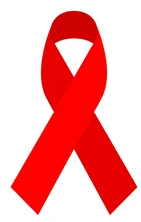By:James Alusine Koromatten
The National HIV/AIDS Secretariat (NAS) says the Covid19 pandemic has led to low funding, thereby affecting their operations.
The NAS Communication Coordinator, Abu Bakarr Koroma told journalists that the Government of Sierra Leone, Global Fund and the United Nations Aids had been supporting the HIV response, but that there had been a drop forcing them to have to rely more on funds from the President’s Emergency Plan for Aids Relief (PEPFAR) which is coming from the United States Government.
He said they had been engaging people to do public teaching on HIV and also emphasized that when the requisite funds were available they engaged the traditional media and printed out handbills to sensitize people on the dangers of HIV. He also said that they receive support from the World Health Organization.
NAS has been working as partners with Network of HIV Positives in Sierra Leone (NETHIPS) who are one of the implementers for various HIV programmes in the country and they deal with support groups which are made up of people working with persons living with HIV in the country. 1.7 percent of the country is said to be HIV positive, the majority being youth.
The Western Area Rural is said to have the highest concentration of infected people. Meanwhile the Coordinator of NETHIPS Williemina Bah has raised concerns about the lack of HIV drugs in the country amid reports of containers of HIV drugs stuck at the without any explanation.
Bah said there are seven districts which are greatly populated with HIV infected people and named a few, Koinadugu, Western Urban, Western Rural, Kambia and Port Loko , adding that their work hinges on confidentiality in order for them to be able to know the constraints of these people and help proffer solutions to their problems.
The AIDS virus destroys and impairs the function of immune cells, and infected individuals gradually become immunodeficient. The body becomes increasingly unable to fight infections and disease and become vulnerable to opportunistic infections and cancers. The most advanced stage of HIV infection is acquired immunodeficiency syndrome (AIDS), which can take from two to 15 years to develop, depending on the individual. HIV remains a major public health issue that affects more than 2 million people in the WHO European Region.


